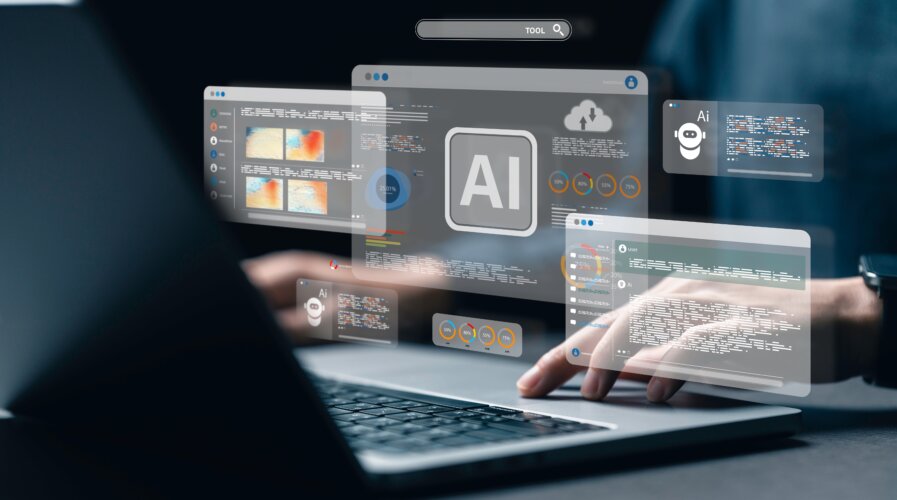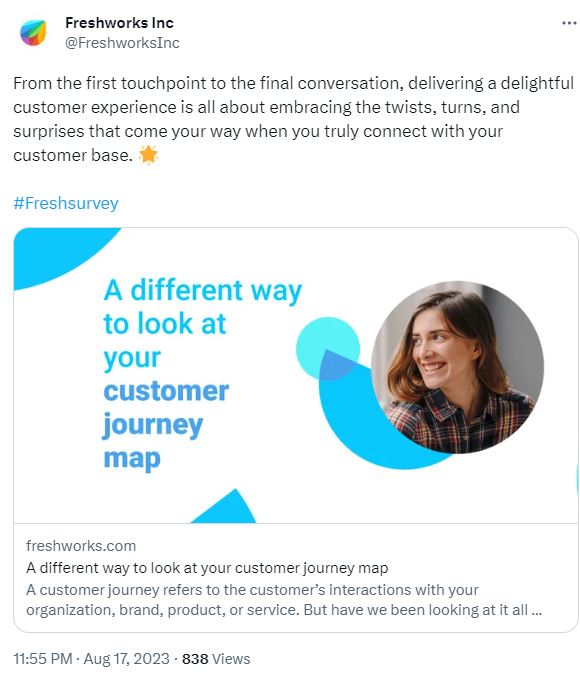
Invisible apps do a lot more than we actually think they do. (Image – Shutterstock)
‘Invisible apps’ supercharge work productivity
- An API-powered experience at work ensures better work productivity.
- Invisible apps work behind the scenes to create a seamless working process.
- Freshworks helps businesses integrate invisible apps into their systems.
When it comes to work productivity, be it at the workplace or anywhere else, invisible apps are working behind the scenes to ensure a smooth workflow process. Unknown to many, invisible apps are the solutions that make user commands work. They are integrated with existing systems and processes to automate repetitive tasks.
For example, when a person talks to a chatbot, in the background the chatbot is actually trying to find the right solution for that query. In the past, an employee would need to manually search their way to a solution.
Even when using voice commands, be it for calling someone or getting a task done, phone assistants are examples of frictionless invisible apps that enable these processes to work.
According to Simon Ma, director and regional manager for ASEAN at Freshworks, in the enterprise space, invisible apps integrate systems to streamline operations and enhance work productivity in an organization. Unlike normal apps that have a visible user interface, invisible apps not only automate tasks but also manage data and facilitate communication.
“The goal is to help with enhancing efficiency, automating processes, and generally improving overall operations. These apps work in the background; when they start to automate repetitive tasks, it eliminates the need for manual interventions. That means invisible apps can also perform actions and make decisions on behalf of the user,” explained Ma.
Enhancing work productivity by improving employee experience
When it comes to work productivity, employees today want convenience and intuitiveness. They don’t want to granularly undertake a business process or manually work a business application. That’s particularly true among Gen Z and millennial employees, who are often immersed in multiple apps when it comes to work. They could be using email, Teams, and WhatsApp for work chats and tasks, for example.

Simon Ma, director and regional manager for ASEAN at Freshworks
“Invisible apps allow for more value creation activities within a short timeframe, rather than long manual processes on traditional applications. It also allows an omnichannel experience, as employees today expect to be engaged in a channel of their choice, be it WhatsApp, emails, Teams or phone. The consumerization of IT has led to an increased expectation of an omnichannel experience in everything we do. And invisible apps allow us to create this experience in the workplace.
“It also allows us to have hyper-personalization because invisible apps are purpose-built to meet users’ needs. And the emergence of AI NLP (natural language processing) has made it possible to transform the employee experience. […] It’s perfect timing, because employees like us are looking for simplicity when it comes to having their requests met and getting the answers they need,” said Ma.
When it comes to integrating with other applications, invisible apps rely heavily on application programming interfaces (APIs) to establish seamless connections between various systems. The invisible apps harness the power of APIs so that they can effectively retrieve and update information from existing systems.
Ma also pointed out that the data can be pulled from different systems into one central platform, which means organizations can also benefit from having their data and records all in one place. This also allows them to measure their processes, see how well they work and have the necessary information needed to kick off future digital transformations.
“We use the Freshworks Neo platform to connect to both first-party and third-party applications and support businesses. Our platform offers more than 1,200 apps enabling us to extend functionalities and deliver the best experience. There are some challenges of course, which are normally around adoption.
“When new technologies such as invisible apps are implemented in existing systems, employees may not fully understand the functionalities behind them. There’s always a learning curve for employees to be familiar and to use it effectively without making any mistakes. By removing the friction from the employee experience, companies can increase the adoption of their digital transformation initiatives and ultimately improve that engagement with the employee,” explained Ma.

Freshworks helps businesses deliver better customer journeys.
Generative AI, cybersecurity and work productivity
With all the hype around generative AI, naturally, it would make sense to see how invisible apps can use the technology. By leveraging generative AI in the workplace, invisible apps can automatically generate content, make predictions, and perform tasks that previously required manual effort. This in turn leads to increased efficiency and productivity, as well as freeing up time for employees to focus on more strategic and complex activities.
Ma also pointed out that generative AI also allows invisible apps to integrate with other systems intelligently. It allows the systems to adapt to changing environments and continuously improve. The AI algorithms can learn from user interactions, analyze patterns, and dynamically adjust the behavior of the apps to align with user preferences or changing business processes.
“Generative AI has a huge impact because it creates adaptability, and shows that invisible apps remain relevant and responsive to evolving requirements in the workplace. It also provides seamless integration and optimal performance,” said Ma.
There have been concerns about the increased use of generative AI for work. Ma acknowledged that it is an area that needs to be carefully managed. With invisible apps and AI, there is a lot of data being collected to predict intention and provide a personalized experience.
“For our customers, we realize that protecting the privacy and security of data is critical. Inadequate security standards in an organization could allow malicious actors on the applications. It puts a user’s privacy at risk and potentially results in identity theft or other harmful actions. Invisible apps collect a lot of data without explicit consent, some consent sometimes, or sufficient transparency. Insufficient awareness can lead to unsuspecting users, unintentionally divulging sensitive data, therefore compromising privacy, and of course, exposing yourself to risk,” explained Ma.
For Freshworks, Ma highlighted that any threat to data can be mitigated through a multi-tier data security model, and end-to-end security through the entire product in a service platform. Providers can also give additional features to protect data on the side of the user, such as passwordless authentication.
“We always advise companies when evaluating their service providers to make sure that the service providers ensure privacy and security compliance and will always implement and practice processes that ensure that customers’ data is stored and processed in ways that are secured,” added Ma.

Gen Z and millennial employees often use multiple apps to work. (Image – Shutterstock)
Invisible apps and work productivity
In Southeast Asia, there is a strong demand for invisible apps, according to Ma. The region has the highest number of digital natives, creating a huge demand for a different type of experience at work. Ma believes that because the digital natives grew up using multiple applications, they expect the same kind of experience at work, especially when it comes to increasing work productivity.
“What we realize is that as companies try to evolve to meet the growing expectations of millennials, Gen Zs, and the younger workforce, transforming the employee experience is critical to ensure that they are able to stay competitive and retain talent. At the same time, with globalization, the markets presented to Southeast Asian companies today are no longer restricted. There’s a global workforce and a global market that companies can target,” said Ma.
For businesses to ensure the best work productivity, they need to able to scale their business to ensure employees are productive. Ma added that this is a reason why Freshworks is also seeing a lot more companies having conversations with them around this need.
Ma believes that the conversational paradigm is going to be critical for work productivity. Society and employees are moving towards the expectation of conversational programs everywhere today.
“I think everyone prefers to have their needs met through conversations. AI will have a huge impact on invisible apps because it allows these invisible apps to work in the background easier, or even in the front end. It can be interfaced with a chatbot which is definitely much more intuitive and powerful right now. I think that will be a huge focus for the whole realm of employee experience and customer experience in the future. And that is also an area that Freshworks is focusing heavily on,” he concluded.
READ MORE
- Safer Automation: How Sophic and Firmus Succeeded in Malaysia with MDEC’s Support
- Privilege granted, not gained: Intelligent authorization for enhanced infrastructure productivity
- Low-Code produces the Proof-of-Possibilities
- New Wearables Enable Staff to Work Faster and Safer
- Experts weigh in on Oracle’s departure from adland






